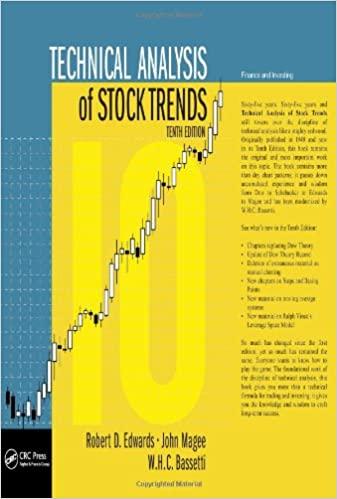Answered step by step
Verified Expert Solution
Question
1 Approved Answer
Things have been very positive, the way we've been talking about earnings lately - - with third - quarter earnings surprising better than expected. But
Things have been very positive, the way we've been talking about earnings lately with thirdquarter earnings surprising better than expected.
But there's something happening under the surface that is not looking so good, and I want to talk about that now.
That is the idea of negative earnings.
Or if that sounds a little bit weird, basically unprofitable companies within the United States stock market.
And it's getting bigger and bigger.
So let's start by looking at just where this is happening.
I don't think it's any secret, that anybody who's been watching the equity market knows that things have not been good for the energy space, of course.
Now, that's the only thing, though, is that it's not just energy companies.
This has basically been happening across a couple of different sectors
What we've been seeing lately is technology companies, discretionary companies, consumer shares, that actually have not been profitable.
So basically what this means is that over time, moreandmore companies have not been reporting shares.
This is something that is very unique right now.
It doesn't really happen this late in the cycle.
And I want to look at some of the major effects, in terms of the longerterm picture the bigger picture, if you will.
This is looking at the trailing monthearnings per share in the white over here.
What we're looking at is the typical way we think about earnings per share right now.
That's at about $ over the past months.
We all know that.
What we don't know is the blue line here.
This is what's looking at the earnings per share minus the companies that are actually losing money.
So that's a drag on the overall earnings.
That's not a good thing, obviously.
Without those negative losses that would put earnings culture about $
It would actually be the highest ever.
Whereas in reality, overall we're actually slightly below the peak in
And here's the display of what actually happens, in terms of the spread between those two.
This is the chart here.
You can see the peak in
More and more companies over the past three years, about, have been actually tallying up some losses.
That's not a great situation.
Now let's move it over to the possible explanation for why.
This is getting a little bit speculative, but I think it fits into the trend that we've been seeing in the market, with growth versus value.
And if you follow me on this, basically what we've seen is this explosion of growth companies in the past couple months.
Right here is this big divergence, where growth companies are up about yeartodate.
I think what's happening is that investors are looking more and more to get that yield in the market, and they're willing to forego the positiveearnings story.
I think that could be potentially concerning, guys, as we look at earnings that overall have been very positive indeed.
But the trend of moneylosing companies is somewhat disturbing.
Step by Step Solution
There are 3 Steps involved in it
Step: 1

Get Instant Access to Expert-Tailored Solutions
See step-by-step solutions with expert insights and AI powered tools for academic success
Step: 2

Step: 3

Ace Your Homework with AI
Get the answers you need in no time with our AI-driven, step-by-step assistance
Get Started


